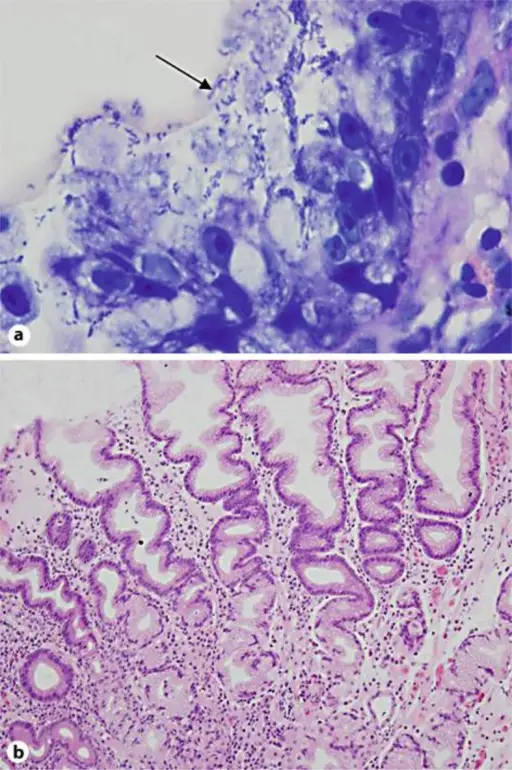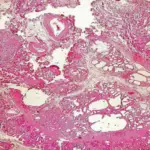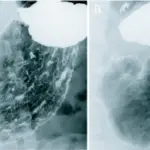Hypertrophic gastropathy is a rare idiopathic hyperproliferative disorder which may present as Menetrier’s disease MD characterized by foveolar hyperplasia in the gastric fundus and body. It is often accompanied by a severe loss of plasma proteins including albumin from the altered gastric mucosa.
What is the Pathology of Hypertrophic Gastropathies?
The pathology of hypertrophic gastropathies is:
-Etiology: The cause of hypertrophic gastropathies is unknown.
-Genes involved: Unknown.
-Pathogenesis: The sequence of events that lead to hypertrophic gastropathiesare a rare idiopathic hyperproliferative disorder which may present as Menetrier’s disease (MD) characterized by foveolar hyperplasia in the gastric fundus and body. It is often accompanied by a severe loss of plasma proteins including albumin from the altered gastric mucosa.
-Histology: The histology associated with hypertrophic gastropathies shows hypertrophic hypersecretory gastropathy is a rare acquired gastropathy that involves hypersecretion of acid, pepsin, and mucin. endoscopically, it is characterized by hypertrophic gastric folds and “cobblestone” gastric body mucosa with atrophic antral mucosa.
How does Hypertrophic Gastropathies Present?
Patients with hypertrophic gastropathies typically are male at age range of 30 and 60 years. The symptoms, features, and clinical findings associated with hypertrophic gastropathies include: vomiting, diarrhea, and weight loss.
How is Hypertrophic Gastropathies Diagnosed?
Hypertrophic gastropathies is diagnosed by CT scan, an upper GI endoscopy, and a biopsy.
How is Hypertrophic Gastropathies Treated?
Hypertrophic gastropathies is treated by Cetuximab or other medications.
What is the Prognosis of Hypertrophic gastropathies?
The prognosis of hypertrophic gastropathies is good. In children, it is usually from CMV infection and lasts for 2-14 weeks, with complete resolution being the rule. In adults, this may increase a patient’s risk of stomach cancer. Thus, a periodic endoscopic surveillance is necessary.



